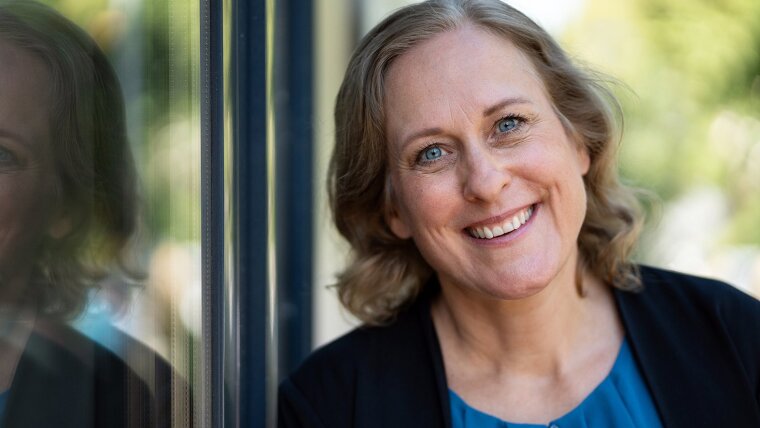
- Studies and Teaching
Published: | By: Stephan Laudien
Dr Antje Rauers has been awarded this year’s Teaching Award by Friedrich Schiller University Jena for the best course concept. The Diplom psychologist is being honoured for the block seminar »Out of the box: Developing an intervention to reduce negative age stereotypes«. The Teaching Award is endowed with 2,500 euros and will be presented at a ceremony on 18 November on Dies Legendi—Teaching Day.
The images of lonely and helpless grandparents
How strongly do negative age stereotypes influence our thoughts and actions? How can psychological intervention concepts be developed to specifically reduce such age stereotypes? Dr Antje Rauers faced this challenge when planning a seminar. The aim was to enable Master’s students to develop these interventions themselves. »At the very beginning, it was all about becoming aware of your own age stereotypes,« says Antje Rauers. This awareness was her own inspiration when she began to conceptualise the seminar.
It was her experiences during the coronavirus pandemic that made Antje Rauers realize her own stereotypical thinking about older people: »These images of grandma and grandpa, lonely and helpless, portrayed older people as a homogeneous, vulnerable group. But the today's elderly are much more heterogeneous than they are portrayed; many are fit and live a self-determined life.« Nevertheless, society tends to be obsessed with youth, and numerous negative images are associated with age: »If you don’t take old people seriously, you also don’t take their specific strengths and needs seriously.«
Segregation reinforces age stereotypes
In the seminar, students respond to a simulated scenario involving a call for tenders from a fictional client. Working in small groups, they develop their own intervention programmes, present them to a jury and then reflect on their own solutions. At the beginning of the block seminar »Out of the box: Developing an intervention to reduce negative age stereotypes«, the students first conducted a thorough problem analysis. Antje Rauers says that the age stereotypes first had to be recognized as such, after which it was possible to find new creative ideas to counter the stereotypes.
One realization was that the phenomenon of age discrimination is reinforced by segregation. This means that the further apart young and old are spatially, the less they have to do with each other, the stronger the attributions towards the other group become; attributions that are often incorrect. Next, the students went into the idea-finding process, a »group process with feedback loops«, as Antje Rauers describes it. The results of this process were then presented to a fictitious jury.
The seminar is to be continued and further developed
The presentation of the results followed the scenario of a call for tenders and a pitch to a selection committee, both of which were simulated. Following the group work, the participants had the opportunity to reflect on their own concepts. The results speak for themselves. Intergenerational participation is being promoted, for example through coaching sessions in which the older generation pass on their experience to the younger generation. Another area is sports, where the older generation can show what they are still capable of.
»Although the interventions are fictitious, they have a practical structure and are intended to enable students to apply their knowledge later in their professional lives,« says Dr Rauers. The students' assessment supports this: the seminar is not only excellently structured in terms of teaching, but also motivating, practical and highly conducive to learning. For Antje Rauers, this is an incentive to further develop and consolidate the award-winning teaching concept. The prize money will also be used for this purpose.